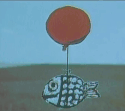|
Plutonis posted:After the costly occupation of Britain which had really meagre political and economic rewards the Romans were way warier of expansionist adventures as well. Huh? Maybe I'm mistaken but this is the first I'd ever heard of this; the Romans both attempted and did plenty of expansion after Britain, and it was the most mineral rich part of the entire empire after Spain. Where are you getting this perception? sullat posted:Just because kon-tiki made it from Peru to Fiji doesn't mean the Incas ever did. The surety of knowing something is out there is hard to understate. That didn't do much to stop the Polynesians. I don't think we can look at uncertainty on the ocean as some universal human value, really.
|
|
|
|

|
| # ? May 10, 2024 05:39 |
|
Nebakenezzer posted:I feel this is a fair characterization British battleships were still blundering into each other in the First World War. HMS Barham and HMS Warspite were out of action for nearly a month in December 1915 after colliding during a training exercise (this came a couple of months after Warspite had been in dry-dock for nearly three months after running aground in the River Forth when her destroyer escorts tried to take her down the small ships channel instead of the dredged battleship channel). Then there was that one Grand Fleet voyage in April 1916, admittedly in darkness and heavy fog, when three destroyers all decided they wanted to be in the same bit of sea, shortly after the battlecruisers HMAS Australia and HMS New Zealand had done exactly the same thing, and then a little later the dreadnought HMS Neptune tripped over an extremely unfortunate Dutch merchant steamer. (They were all trying to either avoid or hunt down a German submarine that wasn't there; some of the fleet's starboard lookouts had imagined they saw periscopes.) And then there was the strange case of the Vindex raid...
|
|
|
|
Nebakenezzer posted:I feel this is a fair characterization I both of these incidents very well (I did a long-form feature article on the loss of Montagu a few years ago...I might try and dig it out and at least link to it somewhere) but they never stop being the sort of material that this smilie was made for:    The wiki article on Montagu is, unfortunately, slightly Ealing Comedy-ed up: The pilot cutter (Albion) didn't meet the battleship minutes before the crash, and certainly wasn't in earshot of the grounding. They met 45 minutes earlier, about 12 miles away from Lundy. But the exchange between the cutter and the battleship is pretty much what happened. The thing is that the Montagu's navigating offer, Lt. Dathan, had been on continuous duty for nearly all the preceding 24 hours because the ship had been undertaking wireless exercises in the Bristol Channel (a seaway infamous for severe and difficult tidal flows). He had been given permission by the captain to turn in for some sleep at midnight. Before he left the bridge he had worked out a course to take the Montagu back to the position it was supposed to be in at daybreak (this is why the captain went at full speed through fog - orders were orders and he had to be east of Lundy before dawn), taking account of the tides. All the bridge officers were, supposedly, more than capable of simply following the course. Lt. Dathan left standing orders that he was to be woken at 0150 so he could be on the bridge at 0200, that the crew were to take regular soundings and he was to be called if they took any at less than 25 fathoms (over five times the Montagu's draft). So Dathan was sound asleep when the ship had it's encounter with the Albion and his assistant Midshipman marked the ship's position as four miles south of Lundy and seven miles west of Hartland Point minutes before going down to wake him at 0150. As the middy was climbing the bridge ladder he heard the leadsman call a sounding of 20 fathoms and went back to summon Lt. Dathan. Dathan had to make a snap decision and reckoned the ship had been taken south by the tide and was approaching Hartland Point. He ordered a turn north and at 0212 the ship smacked at full speed into Lundy. Still hilariously full of hubris and farce but not quite as stereotypically 'Edwardian RN' as the wiki article makes it out to be. Trin Tragula posted:British battleships were still blundering into each other in the First World War. HMS Barham and HMS Warspite were out of action for nearly a month in December 1915 after colliding during a training exercise (this came a couple of months after Warspite had been in dry-dock for nearly three months after running aground in the River Forth when her destroyer escorts tried to take her down the small ships channel instead of the dredged battleship channel). Then there was that one Grand Fleet voyage in April 1916, admittedly in darkness and heavy fog, when three destroyers all decided they wanted to be in the same bit of sea, shortly after the battlecruisers HMAS Australia and HMS New Zealand had done exactly the same thing, and then a little later the dreadnought HMS Neptune tripped over an extremely unfortunate Dutch merchant steamer. (They were all trying to either avoid or hunt down a German submarine that wasn't there; some of the fleet's starboard lookouts had imagined they saw periscopes.) And there was the Battle of May Island], in which eight ships involved themselves in five collisions, leading to the sinking of two submarines. The subs were the epically terrible K-class, which was powered by steam... BalloonFish fucked around with this message at 23:58 on Jan 4, 2017 |
|
|
|
quote:In the austral winter of 1911, Wilson, Bowers, and Cherry-Garrard went on a phantasmagoric five week journey to try and collect the eggs of the empreror penguin. This journey, which gave Cherry-Garrard’s book its title, took place in complete darkness and temperatures that dropped below -77º Fahrenheit. The men, forced to relay and searching for their footprints by candlelight, sometimes made as little as a mile of progress a day. When Cherry-Garrard’s clothes were weighed on his return, they contained twenty-four pounds of ice. That the men survived defies belief—there has never been another journey in the Polar night, even with modern equipment—but they did return, and to Scott's great relief showed no symptoms of scurvy.  Hey guys we're gonna spend five weeks bumbling through the freezing darkness by candlelight to collect some penguin eggs. aphid_licker fucked around with this message at 00:00 on Jan 5, 2017 |
|
|
|
Hey, don't let the Royal Navy have all the "fun".
|
|
|
|
PittTheElder posted:Were ships during the age of sail even all that safe? I know disease would kill crews like crazy, but was it common for the ships to just wreck/sink/vanish? Seems like they probably would be, but I guess comparing the safety record against Mediterranean shipping would be tough owing to a lack of records. Average mortality on transatlantic voyages in the late 18th century were about 3.8%, or 1.5% per month of travel time, and it drops through the 19th century. Not the kind of odds I'd like to stake my life on but I can see how people could come to accept it. I bet there are decent records out there for the Mediterranean, merchants are always good bookkeepers. On galleys they seem to have been perfectly capable of traversing the Indian ocean without much more difficulty than larger ships, although maybe they were more limited by the yearly monsoon.
|
|
|
|
Hmm, when I was thinking about crew deaths I was thinking more about voyages to the East Indies; I think I read something once that suggested crew mortality over the many months it took could run as high as a third.
|
|
|
|
KildarX posted:Was there a first contact doctrine by europeans during exploration of the Americas like did Spanish monarchs tell Spanish explorers " yo if you see natives kill em all and take their stuff?" If anything European monarchs wanted the opposite, in general. One of the causes of the American revolution was colonials encroaching on native territory and provoking native counter attacks which they expected the King to defend them from for free. Then the British government tries to make them pay their fair share of the wages of the people defending them and suddenly it's all 'no taxation without representation!  ' '
|
|
|
|
Koramei posted:Huh? Maybe I'm mistaken but this is the first I'd ever heard of this; the Romans both attempted and did plenty of expansion after Britain, and it was the most mineral rich part of the entire empire after Spain. Where are you getting this perception? I knew it had large Iron deposits but thought that large-scale mining only started during the Saxon era but it looks like I as mistaken. Still, most of the expansion attempts post Britain were just attempts to reconquer Middle Eastern provinces from the Persians instead of going north of the Danube/east of the Rhine.
|
|
|
|
This would be the moment to mention a certain American warship. Probably my favourite naval story of all time. The only ship to my knowledge sunk by a plane under water.
ewe2 fucked around with this message at 02:46 on Jan 5, 2017 |
|
|
|
Is this the same RN that did stuff like neglect gunnery drills because firing the guns made the ship dirty, and judged its ships by how neat the crew uniforms were over ability to hit a target?
|
|
|
|
aphid_licker posted:
That book he references, "The Worst Journey in the World", is also a favorite book of mine, and I'd recommend it unhesitatingly to readers of this thread. The guy writing that blog post doesn't even go into detail about that journey, where most of the author's teeth are shattered by chattering/killed by cold, They have no effective way to dry out their clothes and sleeping bags, so soon this journey in the dark is being made with sleeping bags and clothes infused with Ice. When we say freezing darkness, we mean -50 C for weeks. Oh, and when man-hauling on a glacier, you have to worry about crevices. Their method for avoiding crevices was to just walk over them; if they fell through a weak spot, their harnesses would hold them while the rest of the party hauled them out of the hole? This might happen a lot in the run of a da Nebakenezzer fucked around with this message at 03:34 on Jan 5, 2017 |
|
|
|
Nebakenezzer posted:That book he references, "The Worst Journey in the World", is also a favorite book of mine, and I'd recommend it unhesitatingly to readers of this thread. The guy writing that blog post doesn't even go into detail about that journey, where most of the author's teeth are shattered by chattering/killed by cold, They have no effective way to dry out their clothes and sleeping bags, so soon this journey in the dark is being made with sleeping bags and clothes infused with Ice. When we say freezing darkness, we mean -50 C for weeks. Oh, and when man-hauling on a glacier, you have to worry about crevaces. Their method for avoiding crevaces was to just walk over them; if they fell through a weak spot, their harnesses would hold them while the rest of the party hauled them out of the hole? This might happen a lot in the run of a da (USER FELL INTO A CREVASSE HALFWAY THROUGH WRITING THIS POST)
|
|
|
|
OwlFancier posted:Is this the same RN that did stuff like neglect gunnery drills because firing the guns made the ship dirty, and judged its ships by how neat the crew uniforms were over ability to hit a target? It happened on a few occasions, but not nearly as often as the quotes from the Cold War thread in TFR would have you think.
|
|
|
|
Trin Tragula posted:(USER FELL INTO A CREVASSE HALFWAY THROUGH WRITING THIS POST) I'm going to heavily second the book, fantastic read. Cherry-Gerrard is the archetypical enthusiast Boy Scout empire adventurer, and his book is endlessly positive about an expedition that can best be described as "lucky anyone survived at all, Christ"
|
|
|
ALL-PRO SEXMAN posted:It happened on a few occasions, but not nearly as often as the quotes from the Cold War thread in TFR would have you think. It is kind of funny/depressing to think the Royal Navy has centuries worth of issues which seem to be in a weird cycle.
|
|
|
|
|
lenoon posted:I'm going to heavily second the book, fantastic read. Cherry-Gerrard is the archetypical enthusiast Boy Scout empire adventurer, and his book is endlessly positive about an expedition that can best be described as "lucky anyone survived at all, Christ" I do not even begin to get the mindset of those guys. They spend months being physically miserable, get hosed up in all kinds of permanent ways, be it returning sans teeth, sans fingers and toes, with horrible lingering aftereffects of exotic central African diseases, barely escape horrible death in a million hair-raising ways, and then they go out and do it again.
|
|
|
|
aphid_licker posted:I do not even begin to get the mindset of those guys. They spend months being physically miserable, get hosed up in all kinds of permanent ways, be it returning sans teeth, sans fingers and toes, with horrible lingering aftereffects of exotic central African diseases, barely escape horrible death in a million hair-raising ways, and then they go out and do it again. Yeah but the ladies LOVE you.
|
|
|
|
aphid_licker posted:I do not even begin to get the mindset of those guys. They spend months being physically miserable, get hosed up in all kinds of permanent ways, be it returning sans teeth, sans fingers and toes, with horrible lingering aftereffects of exotic central African diseases, barely escape horrible death in a million hair-raising ways, and then they go out and do it again. You really need to read this book  Trin Tragula posted:(USER FELL INTO A CREVASSE HALFWAY THROUGH WRITING THIS POST)  Many of the men who survived Scott's last expedition got back to be in time for World War 1; apparently Trench Warfare wasn't all that bad comparatively. I mean once you wake up 1) on a bay of ice 2) that is now breaking up and drifting out to sea and 3) you are racing to get to solid land while 4) preserving your gear and more importantly 5) preserving the ponies you brought to haul things, and the ponies are terrified because 6) a pod of Orcas is now hunting your fleeing group of humans and ponies and are trying to thump the ice pans you are on to knock you in the water, World War is easy. The author (son of a General) was put in charge of a armored car company. At some point he had a serious nervous breakdown and had to be 'invalidated" home I assume that's the word Anyway, I found a book on something the thread has wondered about : the Italian navy in World War. Nearly done chapter one. Hopefully I'll get a few "poo poo I'm reading" posts out of it. Things I've discovered so far:
|
|
|
|
I've read so many junior officer, explorer, civil servant and intelligence officer biographies that I think I can fumble towards some vague understanding of why they were like that. It's their upbringing. It's in everything they read, are taught, are told from youth to adulthood - even in their job descriptions ("wanted: Boy Scout for insane expedition, chance of death high, chance of honour certain"). It's everywhere - life is a game, sacrifice yourself for the empire's good, the white man carries a heavy burden (and his actions have to justify being given the burden in the first place), Christian sacrifice doctrine, etc etc. There's a heady mix of loyalty, indoctrination and racism. Imperial Britain became absolutely fantastic at educating, raising and indoctrinating its Middle and upper classes in service to the Empire. Starting out with loyalty to the school above all, then to the college, to the country and the monarch. In the earlier days of patronage and buying positions these ideas led middle class boys into low level (i.e. Cheap) civil service positions where they were given huge responsibility and told to bear it regardless. These men become senior often through just staying alive and being committed, they stay in the civil service abroad or the military (and start to reform it), or they go into teaching and civil service at home, all of them passing on the habitus of the imperial servant - and so the system reinforces itself over and over, getting further into the ideal of Christian self sacrifice for the Empire's cause. By the First World War, I'd say that the Empire has reached unthinking perfection in turning out middle class men dedicated to "the Empire" - or another equally nebulous concept like "science". Shakleton, Cherry Gerrard and Scott on the exploration front, or even people like Gordon and Kitchener in the military, any number of Indian Civil servants - all living the creed they learnt at school in their professional lives, for better and frequently for much worse. There was corruption and idiocy and incompetence, racism, bigotry and cowardice, but the "ideal imperial servant", I would argue, was turned out by the thousand - and the British education system was fine tuned to do so.
|
|
|
|
Still is, in some ways. Or at least it's still very good at creating a massive culture bubble and gap between the ruling classes and everyone else, possibly rather less good at the civil service part.
|
|
|
|
I'd say it's still pretty good at producing civil servants - 18 people did my degree with me, 8 of them are now in the civil service in some form. Was the "natural" thing for them to do when they left Cambridge to head out into the world of work. They knew they'd get places, so they did.
|
|
|
|
I don't think it's quite fair to criticize the Regia Aeronautica for not having dedicated torpedo planes or torpedo doctrine since the SM.79 performed very well early in the war.
|
|
|
|
The wifey-poo and I were talking about Game of Thrones last night and we were trying to figure out if it mimics one specific era of time. It seems like it borrows from middle ages all the way up through the Renaissance. The pieces we could identify were: Kingdoms rather than more modern democracy Standing, professional armies seem to be a thing No gunpowder Writing/reading is a valued trait and knowledge is preserved in libraries Castles have more modern designs (for newer ones), but not to the level of star forts
|
|
|
|
Game of Thrones was IIRC, originally based on the Wars of the Roses.
|
|
|
|
Fangz posted:Game of Thrones was IIRC, originally based on the Wars of the Roses. Oh, so the Dothraki are the Irish? a lot of similarities: Clan based culture, strongman leaders, horse nomads over an endless steppe, etc.
|
|
|
|
turn it up TURN ME ON posted:The wifey-poo and I were talking about Game of Thrones last night and we were trying to figure out if it mimics one specific era of time. It seems like it borrows from middle ages all the way up through the Renaissance. Game of Thrones is sort of based on the wars of the roses (or at least a wikipedia article about it), but it's like most fantasy books in the sense that its setting is a weird mash-up of Pop History's Greatest Hits. So you have the Renaissance Italian city-state knockoffs, your vague blend of English and French culture as the main group, your Mongol stereotypes, and your heavy metal album cover vikings. You're not really going to be able to nail it down specifically beyond that.
|
|
|
|
turn it up TURN ME ON posted:The wifey-poo and I were talking about Game of Thrones last night and we were trying to figure out if it mimics one specific era of time. It seems like it borrows from middle ages all the way up through the Renaissance. The armies seem very feudal to me, maybe a retinue is kept fairly consistently around for the larger houses, but it seems more like the levies are raised in times of war and take time to mobilize. The closest thing to a professional standing army is either the large merc companies or the Unsullied.
|
|
|
|
Bear in mind while you're reading that the Italians produced a lot of torpedo boats that were basically small destroyers (600-900 tons or so) rather than just MTBs. turn it up TURN ME ON posted:The wifey-poo and I were talking about Game of Thrones last night and we were trying to figure out if it mimics one specific era of time. It seems like it borrows from middle ages all the way up through the Renaissance. Check out Steven Attewell's Race for the Iron Throne.
|
|
|
|
|
Grenrow posted:Game of Thrones is sort of based on the wars of the roses (or at least a wikipedia article about it), but it's like most fantasy books in the sense that its setting is a weird mash-up of Pop History's Greatest Hits. So you have the Renaissance Italian city-state knockoffs, your vague blend of English and French culture as the main group, your Mongol stereotypes, and your heavy metal album cover vikings. You're not really going to be able to nail it down specifically beyond that. All of which bar the Vikings were a thing within around a century or so of the Wars of the Roses, of course, so as fantasy goes it's actually fairly on point historically compared to most things in the genre that aren't, say, Guy Gavriel Kay.
|
|
|
|
Game of Thrones loving sucks
|
|
|
|
Plutonis posted:Game of Thrones loving sucks Careful, you'll cut yourself on that edge.
|
|
|
|
Grand Prize Winner posted:Oh, so the Dothraki are the Irish? What? They are as generically steppe nomad as you can get.
|
|
|
|
Ireland had horse nomads? E: Ireland has steppes?
|
|
|
|
No, I'd agree that they are modeled on the Irish. It's very obvious in the language and culture etc.
|
|
|
|
I'm lost here
|
|
|
|
Crazycryodude posted:Careful, you'll cut yourself on that edge. It's not great
|
|
|
|
the italian navy was cool, and also good. my grandfather was on one of their destroyers.
|
|
|
|
OfficialGBSCaliph posted:It's not great I'm not particularly fond of it myself but this isn't exactly the thread to vehemently express that with little to no prompting.
|
|
|
|

|
| # ? May 10, 2024 05:39 |
|
turn it up TURN ME ON posted:The wifey-poo and I were talking about Game of Thrones last night and we were trying to figure out if it mimics one specific era of time. It seems like it borrows from middle ages all the way up through the Renaissance. renaissance helmets, but ditto
|
|
|











 Yes, it's like a lava lamp.
Yes, it's like a lava lamp.























